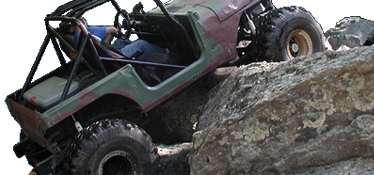ManglerYJ
Well-Known Member
- Joined
- Mar 20, 2005
- Location
- Lexington, NC
We just picked up a 1999 Silhouette that has a soft pedal. It was a harrowing trip home from WV down the mountain in it and thankfully the weather was great, because it would have been towed home if not.
The pedal is pretty soft and at times, it felt as though there were no brakes at all. When it would finally stop, there would be an audible "clunk" when starting again and you could see the rear of the van sort of lunge when the brakes were released.
So I started tearing into it to see what was up. The rear shoes look great - in fact I put a new shoe up to it and the thickness was near identical. The drums were rusty on the exterior, but were not gouged out or anything, but since there were some brand new in the box ones included with the van, I threw new ones in place. Aside from being dusty, there was nothing else out of the ordinary so I didn't replace the shoes. When I had each rear tire in the air, I spun the tire and had my 5 year old son push the pedal to see if it would stop. The passenger side never did, but the driver's side stopped as normal.
I'm suspecting either air in the line, or a seized up wheel cylinder. I don't have a one-man brake bleeder to check and my son just isn't old enough to understand "pump and hold", so I'll have to wait to bleed them until my wife is home.
Any other suggestions for stuff to check for?
The pedal is pretty soft and at times, it felt as though there were no brakes at all. When it would finally stop, there would be an audible "clunk" when starting again and you could see the rear of the van sort of lunge when the brakes were released.
So I started tearing into it to see what was up. The rear shoes look great - in fact I put a new shoe up to it and the thickness was near identical. The drums were rusty on the exterior, but were not gouged out or anything, but since there were some brand new in the box ones included with the van, I threw new ones in place. Aside from being dusty, there was nothing else out of the ordinary so I didn't replace the shoes. When I had each rear tire in the air, I spun the tire and had my 5 year old son push the pedal to see if it would stop. The passenger side never did, but the driver's side stopped as normal.
I'm suspecting either air in the line, or a seized up wheel cylinder. I don't have a one-man brake bleeder to check and my son just isn't old enough to understand "pump and hold", so I'll have to wait to bleed them until my wife is home.
Any other suggestions for stuff to check for?
Last edited:

